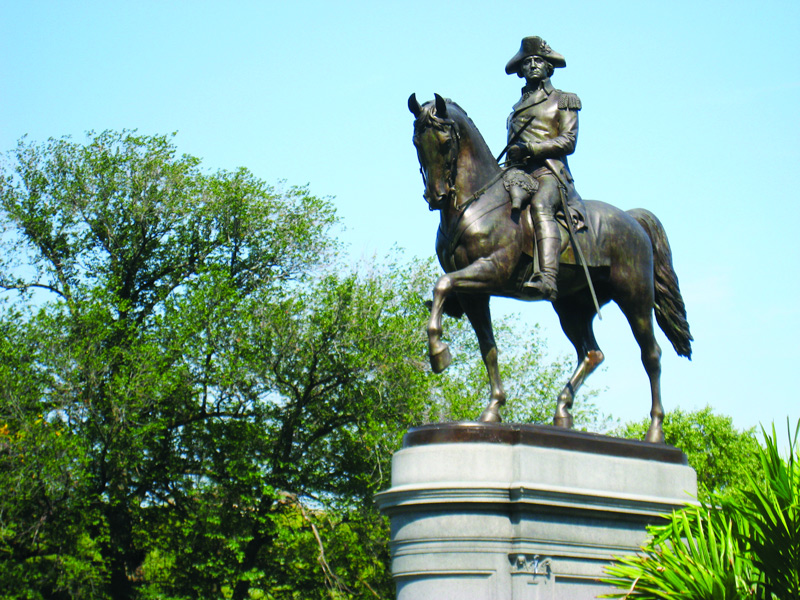
George Washington statue at Boston Public Garden
Some of us may have the day off from work or school today in observance of Presidents’ Day. But did you know there is no actual federal holiday named President’s Day? The federal government recognizes the holiday that takes place the third Monday of February as “Washington’s Birthday.”
When did it start? When the first president of the United States died, the nation wanted to honor his contributions. His birthday – Feb. 22 – was recognized as an unofficial day of remembrance in 1800, and it eventually became a federal holiday throughout the country in 1885.
Fun fact: It was the fifth holiday – after New Year’s Day, Independence Day, Thanksgiving, and Christmas – to be recognized by federal banks.
Ch-ch-ch-changes
For nearly 60 years, Washington’s Birthday solely celebrated the first president. Several states began celebrating Abraham Lincoln’s birthday as a state holiday, while others recognized Thomas Jefferson. Several proposals were made to combine a holiday to recognize the birthdays of Washington and Lincoln in the 1950s, but Lincoln’s birthday has never been recognized as a federal holiday.
More confusion
In 1971, President Richard Nixon enacted the Uniform Monday Holiday act, which moved some holidays to Monday to allow for three-day weekend celebrations. As a result, Washington’s Birthday was moved to the third Monday of February. Although Nixon’s executive order still explicitly named Washington’s Birthday as the official holiday, several states renamed the holiday as Presidents’ Day. The third Monday of February continues to be one of the most confusing holidays in the United States.
Did you know? Only four U.S. presidents were born in February: Ronald Reagan (Feb. 6), William Henry Harrison (Feb. 9), Abraham Lincoln (Feb. 12), and George Washington (Feb. 22).
In the spirit of Service, Not Self, the mission of the American Legion Auxiliary is to support The American Legion and to honor the sacrifice of those who serve by enhancing the lives of our veterans, military, and their families, both at home and abroad. For God and Country, we advocate for veterans, educate our citizens, mentor youth, and promote patriotism, good citizenship, peace and security.